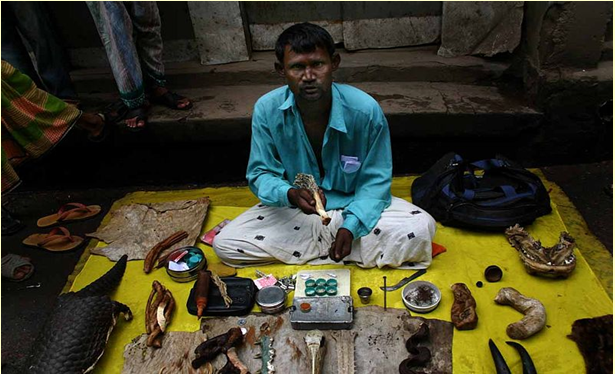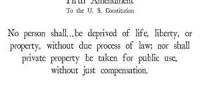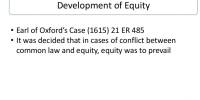Executive Summary
Informal trading is a positive development in the micro business sector as it contributes to the creation of jobs and has the potential to expand further countries economic base and to contribute to the creation of a globally competitive world class nation.
Informal trade will continue to play in the creation of jobs and the opening up of economic access opportunities for historically disadvantaged communities. In order to encourage economic growth, this sector has to be encouraged to develop from survivalist to more robust business enterprise. Though this sector can not pay any tax but it helps to reduces unemployment by creating self employment. On the other hand this informal sector is continuously contributing on national GDP.
In our research our core objective is to find out what behavior of informal traders with customer for increasing sales. We have focused some street vendors how they are acting with customer to increasing sales volume.
Introduction
The Fair Trader Act makes it illegal for traders to mislead consumers, give them false information, or use unfair trading practices.Informal trading is defined as the economic activity undertaken by entrepreneurs who sell legal goods and services within a space deemed to be public property within the informal sector. Another simpler definition of informal trading is restricted to “those businesses which are not registered by government and are not subject to other formal regulation or taxation especially in retain.
Informal trading shall refer to economic activity by individuals or group involving the sale of legal goods and services, within public and private places which spaces are generally unconventional for the exercise of such activity. It is generally unorganized and not always registered as a formal business activity. In many case informal trading takes place on streets and pavement on private property and tends to require little more than the actual goods and services to set up.
Types of Informal Traders
The different types of informal trading that take place in our country those are:
- Street side trading
- Market side trading
- Trading in public open spaces
- Trading at transport interchanges
- Mobile traders
- Intersection trading
- Special events.( seasonal, night market)
We have observed the behavior of some informal traders how they are doing their activity to increase sell with their customer. We have find different behavior in different location and traders Informal traders has less skill, quality, education than a formal traders have so they can not take any effective strategy about their business promotion.
Justification
Formal and informal trader sector in a developing country is a subject with policy implications. Informal traders in a developing country have some well participation in developing process. Informal trade system derived from efficient mediator and allocation of financial resources which formal trading system has.
The guardian of the bank the Bangladesh bank does not recognize the informal financial system in Bangladesh. Beside informal traders can’t collect any information of market in regular basis.
Comparing to the growing competition of formal trading system many of the case informal traders do business as a part of literature; most of the time they are inefficient. In Bangladesh informal trading system is a quite large and significant part of economy system. As well as informal trade sector demonstrates a number of positive aspects can develop the economic condition by proper assessment. Beside informal trade system doesn’t have well money transaction system like formal trade.
The numbers of informal traders are very difficult to define closely, because they have no original registration of business. Though in rural area the assuming percentage is close to 59-69 percent regarding by the statistics of 1986.
In Urban it is more difficult to define. It was near of 15 percent by statistics of Haq 1988. Yet informal trade system has dominance in economy with formal traders.
So informal trading system has some barrier to attracting customers and increases their sells.
Objective:
- Who are the informal traders?
- How much informal trade need for an economy?
- Do informal traders have all the knowledge of attracting the customers and increase the sell?
- Can informal traders use all the techniques of attracting customers and increasing sell?
- Do informal traders act rationally or not?
Limitations of the study:
Many limitation of informal trading can be listed:
- Mostly non-registration business, so no proper documents of informal trader.
- Traders are mostly less educated.
- Traders are less experienced to determine customer demand.
- Do not know regular basis market news.
- No proper place for business.
- No proper advertisement opportunity for products.
- Relationship is not so good with each other for business people.
- Less experience in quality maintenance of selling products.
Research Methodology
Primary data source: As we selected the survey method so we prepared some questionnaire and gave it to customer.
- Close end questions: Close end questions are, there will be some options and respondents can choose only one option.
- Open end questions: Open end questions are there will be some options and respondents can, not only choose the option but also express his opinion.
Secondary data source: It basically collected by visiting various websites, reading newspaper, journals, articles etc.
Study materials /sources of data /study area: Due to our research topic it is obvious that our research area must be the place where vendors and informal traders operate their business.
Location:
We survey research in our own territory like Banani, Uttara, khilkate etc.
Sample:
We take interview of people who are generally performs informal trade. we simultaneously take 10 people interview by providing them our objective based questionnaire. Generally they are not that much interested to give interview but we get information by proper approach and then gradually they response our questionnaire.
Literature review
In fact we did not find any research article which has prepared on “Informal Traders Act”. But we have found some relevant research article those give direction to how we can ensure the answer of this question (Does informal traders act rational to attract customer and increase their sell).
From this article prepared by Mohammad Akharuzzaman and Atsushi Deguchi, 2010, Public Management for Street Vendor Problem in Dhaka City, Bangladesh, we have found some important idea about our research related problem likes, major locations of informal traders, types of street vendor, vendor in different time, age of vendors, necessity of street vendor, quality of vendor, classification of vendors etc.
We also find that “Uncontrolled and unplanned growth of informal trade sector will have a negative impact on the Municipality” from the research article of People Centred Development on informal trading policy.
Strategy of Informal Trader
Dominant Strategy:
As we know that the dominant strategy is the strategy which controls or influence all other strategy and also most preferable strategy for a player. So what are dominant strategies for informal traders are mentioned in below —
Location Strategy
A vendor like seller of chotpati, collector of refused and wasted paper, cake seller, and toy seller, people who sell chicken, fish, and vegetables on their head a selected location for running their business. Because they have a unity in their running place without their community they will not allow for continue their business.
Generally they have to pay money to the local terrorist, police etc and they don’t allow any outsiders to continue business in their specific location. So location is a most important dominant strategy for an informal seller.
Self sufficient strategy
Self dependent is also a most preferable strategy for an informal trader. They think about their freedom and due to their little capital they are encouraged to star sole proprietorship business. Due o floating business nature their business area is relatively large and unlike any other sole proprietorship business vendors gain relatively a little bit high profit because their exist a imperfect information between then and their customer
Strictly Dominant Strategy
Strictly dominant strategy is a strategy when this strategy strictly dominates every other possible strategy. Informal traders exclusively play some strategy that is strictly dominant by nature like as
Floating or Mobile Strategy: generally informal traders like to move a business which is floating and mobile by nature. Because they have not that much capital to establish a fixed shop (unlike grocery shop). So they prefer carry and bearable form to run their business like floating tea seller, newspaper seller, fish, chicken, vegetables sellers etc.
Employ a representative: Nowadays it is seen that most tea staler employs an assistant who generally serve their customer. Like students of an university campus are much reluctant to go and buy tea. So teas staler make a strategy with employing a tea boy who carry tea to students at any corner of the campus and collect money from them.
Hiring mike, newspaper and TV: in most case the people who sell herbal medicine, insecticides use mike to attract their customer. They attract customer by telling some benefit and advantages of their product and most cases they say extravagant and incredible benefits of their product.
Tea staler (small hotel) generally keeps newspaper and TV to attract their customer because people who love to gossip generally prefer to read newspaper with watching television and tea staler take this chance and encourage buying and consuming the product.
Strictly Dominated Strategy
At the opposite extreme of dominant strategies are dominated strategies, which Yield lower payoffs than could be obtained by playing another strategy, regardless of what the other players choose. Thus a strictly dominated strategy for a player yields a Lower expected payoff than at least one other strategy available to the player, Regardless of the strategies chosen by everyone else. It follows that if one player has a Dominant strategy in a game, then all the other strategies is dominated. If a player has only two strategies to pick from, and one of them is dominant, then the other one must be dominated.
For example
Sometimes Informal trader sells their product on credit, buyer take product promising to return money. Informal traders do like that because of increasing their sells. But most of the times they do not get return from buyers. This strategy is so weak for road side and immobile traders. On the other hand mobile traders who sell his product door to door , he can make this strategy easily because he know all ( address) about buyer.
Mechanism of Information of Informal Traders
| Buyer | Seller | Nature |
| Know | Know | Perfect |
| Don’t know | Know | Imperfect |
| Know | Don’t know | Imperfect |
| Don’t know | Don’t know | Imperfect |
Here most strong imperfect is (buyer don’t know and seller know).
In our report where we consecutively define the rational behavior of informal traders we easily say that in some case mechanism of information is perfect but most other case it’s relies on imperfect information and there will be huge information gap between seller and buyer. The perfect information generally refers where both buyer and seller know about the product. For example, in grocery shop the product identity and price determined by company itself; the grocers have no significant impact on determining price so price here is predetermined. So both buyer and seller know about the product and information is perfect.
But in most other case of informal traders like (people who sell chicken, duck, fish, vegetables, chotpati, egg, sellers of bangles, sharee, toys etc) are mostly imperfect in nature because they generally don’t give us high quality product but they treat then as a high quality provider and most of the case their product is not qualified enough so market is strongly imperfect here.
Asymmetric Information
A situation in which one party in a transaction has more or superior information compared to another. This often happens in transactions where the seller knows more than the buyer, although the reverse can happen as well. Potentially, this could be a harmful situation because one party can take advantage of the other party’s lack of knowledge. Asymmetric information may result in a bad deal for one party.
Informal traders like mango seller sell mango to the buyer. Mango seller knows whether the mango formalin free or not but seller does not know. Here the mango seller has more or superior information compared to the buyer. Mango seller knows more about the mango whether it is formalin free or not.
For example:
There are many informal traders sell their product door to door. They sell herbal medicine, electronic product and most of the time their target customer will be village people, uneducated people, and women. Those people does not knows whether the product good quality product or bad quality product. Informal traders target those customers because they know they are totally uninformed about the product. Here the seller has more or superior information compared to the buyer.
Investopedia explain Asymmetric Information
With increased advancements in technology, asymmetric information has been on the decline as a result of more and more people being able to easily access all types of information.
Information Asymmetry can lead to two main problems
- Adverse selection- immoral behavior that takes advantage of asymmetric information before a transaction.
2. Moral Hazard- immoral behavior that takes advantage of asymmetric information after a transaction
Repeated game
In game theory, a repeated game (super-game or iterated game) is an extensive form game which consists in some number of repetitions of some base game (called a stage game).
The stage game is usually one of the well-studied 2-person games. It captures the idea that a player will have to take into account the impact of his current action on the future actions of other players; this is sometimes called his reputation
Example- The informal traders like cobbler, tea seller, herbal medicine seller, insecticides seller etc. playing significant repeated game. Because every day they sell the same product and perform same strategy to conduct their business.
Findings and Analysis
1 How they set price?
a) According to their cost b) By person to person c) according to location d) All of the above
- How they achieve popularity or publicity?
a) Through courtesy b) Through cut price
- How they select their business area?
a) By profit seeking b) Through communication advantage c) Availability of target customer
4.Are they defining their target customer?
a) Yes b) No
5. Are they analyzing the psychology of target customer?
a) Yes b) No
6. How they receive feedback from their customer?
a) Face to face b) Word to word
Conclusion
The informal traders of our country generally act like irrationally. In most cases they prefers floating or mobile form of business by nature due to their little capital and due to little bit education they are less concern about people’s health and serve accordingly but all cases are not similar. Because In our report we find out that even with the gap of asymmetric information sometimes informal traders also act rationally. For example in times of holy Ramadan some informal traders like the seller of tupi, scent ,etc provide an offer by which a buyer can get one scent by purchasing one tupi. Another example can be some vendors like the seller of food items sometimes take no money from their customer. So it can’t say that the informal traders are not always irrational.
References
www.hsrc.ac.za/Research_Publication
Thefinancialexpress-bd.com
nndccomputercentre.com
www.binbd.com/benjp
















